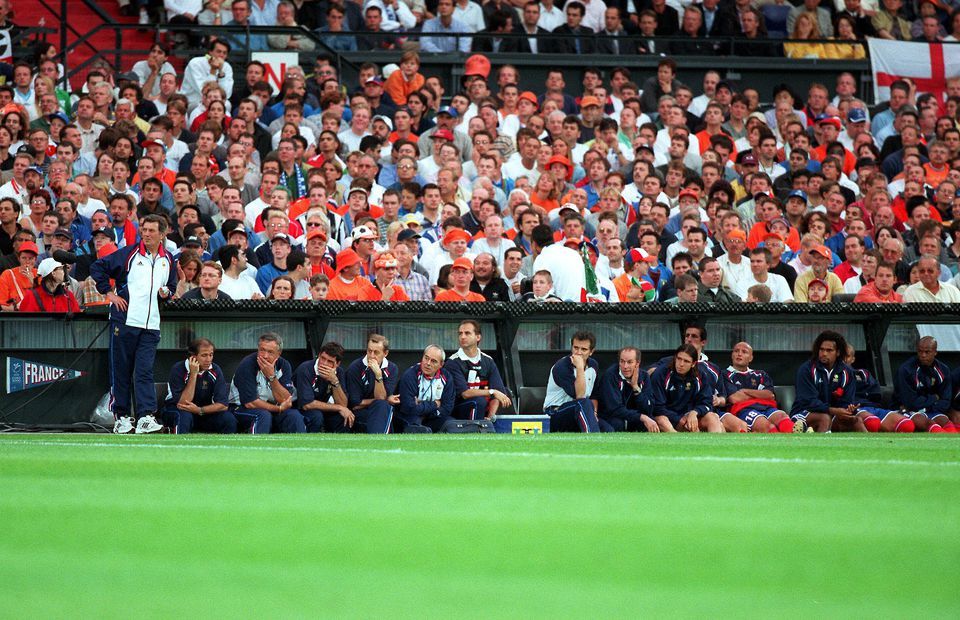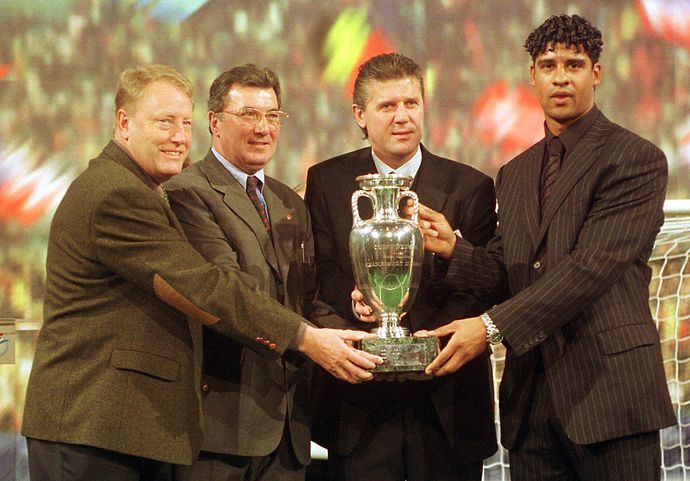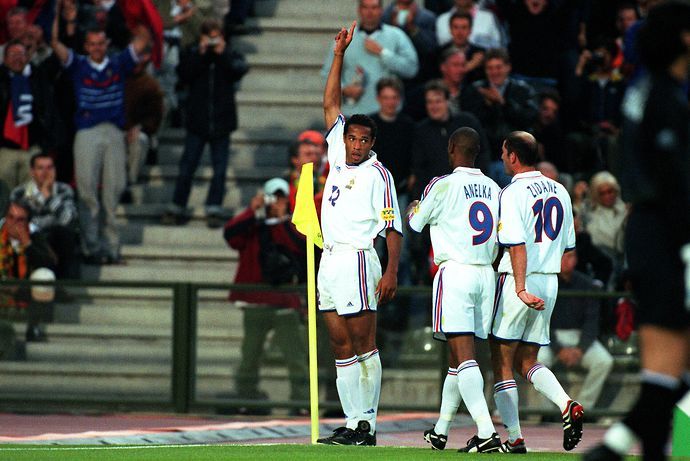There is a very defined difficulty in succeeding the manager to have led a team to the promised land. How can you follow a World Cup win, when the proponent of that glory decides to walk away?
As wonderful as becoming world champions is, there was something mildly unsatisfying about France’s success at their own World Cup, in 1998.
A one-sided final, against a Brazilian team that were in disarray from the moment confusion reigned over whether Ronaldo was fit to play of not, France’s run to the unsatisfactory 1998 World Cup Final wasn’t exactly unspectacular, but nor was it as spectacular as many of us had hoped.
Bedecked in kits that were strikingly similar to the ones France had won the 1984 European Championship in, it wasn’t asking much for the football to nod noticeably towards what had unfolded 14 years prior to the World Cup too.
Technically superior to all other competitors, the fruition of a decade of Clairefontaine based organisation and planning, this felt like a combination between football and textbook late-20th century architecture. Yes, it was the ultimate success, but it greatly lacked the charm, charisma, soul, and imagination of 1984.
Already through to the knockout stage by the time they were rigorously tested by Denmark, what followed was a double suspension for Zinedine Zidane here, and a laboured extra time against Paraguay there; what followed was a penalty shootout against Italy here, and some frowned at party pooping on Croatia there.
Without a compelling striker at their disposal, or at least a system that required one, the French attack seemed toothless and prosaic at the 1998 World Cup. It was a tournament that they won from midfield, and thanks to a miserly defence. They were a riddle, wrapped in a mystery, inside an enigma, except armed with a truly magnifique national anthem, and great kits.
A watercarriers’ World Cup, what was needed next was for Europe’s new dominant force to win again, but this time with more feeling.
As Aimé Jacquet departed the scene, to be replaced by his assistant, Roger Lemerre, France were then made to sweat on qualification for the 2000 European Championship finals, all the way to the final whistle of the last game, at the Stade de France, against Iceland.
One false move, and France could easily have missed out on qualification. With the nightmares of failing to qualify for the 1994 World Cup still a raw memory, anything had to be viewed as possible, and when Iceland came back from 2-0 down, to draw level at 2-2, then all alarms bells must have been ringing, before David Trezeguet settled the issue for Lemerre.
Once over the finish line of qualification, the Gallic shrug loosened a little.
Lemerre went to the Low Countries armed with the type of attacking options that Jacquet could only have dreamt of.
While in 1998, Jacquet did call up both Thierry Henry, and Trezeguet, they were rawer versions of themselves at the time, both not long out of their teens, and neither to have registered an international goal prior to the tournament. Sitting out the World Cup altogether, was Nicolas Anelka.
By the time Euro 2000 rolled around, Henry, Trezeguet, and Anelka were two years more experienced, with Anelka now a Real Madrid player, and Arsene Wenger having rescued Henry from Juventus, where the Serie A giants didn’t seem to have a clue how to get the best out of him.
Identity crisis averted at Highbury; Wenger blew all ambiguities about Henry away. In the colours of Arsenal, he was deployed centrally to such effect that the memories of Anelka soon dissipated, while any notions of the player being pushed out to the wing, as had happened so often before, were consigned to history.
France and Lemerre benefitted massively and added to the mix were the emergence of Sylvain Wiltord, while the dependable, if unspectacular Christoph Dugarry was also selected.
An eclectic path having taken him to the top job in French football, inclusive of leading the French Army team, Lemerre was very much in the right place at the right time, at Euro 2000.
Not only did this attacking array drop onto the palm of his hand, but the confidence engendered by winning the World Cup had left France with what, at times, seemed like a squad of players that were utterly convinced of their greatness, and of their divine right to win more honours that summer.
They also had a peak-of-his-powers Zinedine Zidane, while Patrick Viera was struggling to force his way into the starting line-up.
Even a stereotypical group of death did not faze them.
Thrown together with not only the Netherlands, who were co-hosts, but also a star-studded and primed Czech Republic, plus the 1992 European champions, Denmark, France got off to the perfect start, brushing the Danes aside with ease.
Not afraid to change a winning side, Lemerre altered his formation for the pivotal clash with the Czech Republic, bringing in Viera at the expense of Youri Djorkaeff, who in turn was unleashed at the start of the second half, when replacing Emmanuel Petit.
Ten minutes into the second period, Dugarry came on for Anelka, and within five minutes of the switch, Djorkaeff had scored the winning goal. It was a masterclass in being bold with substitutes and with a place in the quarter-finals assured, Lemerre rang the changes for the group decider, against Frank Rijkaard’s team.
A free flowing and entertaining defeat set France up with a last-eight encounter with a talented but flawed Spain. Again, Lemerre came with a new plan, and it worked to perfection, this time Dugarry as the selfless front runner.
Disorientating for opponents, the changes were rung again for the semi-final with Portugal. On an evening when Henry and Anelka were back in tandem, Zidane scored the winner with a late golden-goal penalty, in extra time.
Returning to the formation and line-up that had defeated Spain in the quarter-finals, with Dugarry as the Trojan Horse, France went up against Dino Zoff’s excellent Italy, in the final.
Seconds away from defeat at the end of 90 minutes, the pressure eventually told, as Wiltord equalised, just as Italy’s bench were preparing to celebrate glory.
Stunned, with just two minutes remaining until the extra time interval, up stepped Trezeguet with his moment of European Championship iconography.
Lemerre had been the perfect poker player, constantly spinning new webs for his opponents to become stuck in; this success at Euro 2000 had aesthetically trumped Jacquet’s World Cup winning team. Lemerre’s was a team that was closer in relation to the legends of 1984.



















